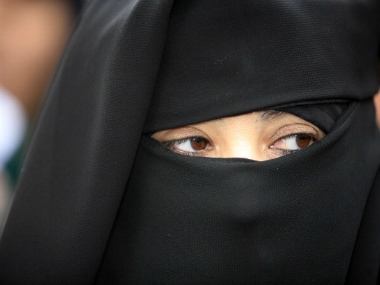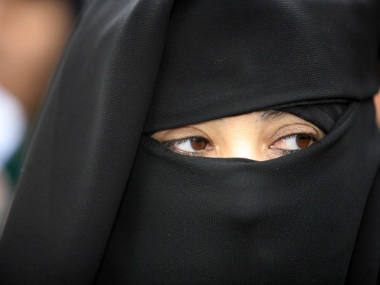The Allahabad High Court on Thursday passed a judgment declaring triple talaq as ‘unconstitutional’ and said that it ‘violates the rights of Muslim women.’ The judgment has reignited the contentious debate around Muslim women rights and the divorce practices in the community. The judgment itself has sparked off a huge debate on the legality of the order, which forms part of the judgment on a matter where the issue of triple talaq was not directly in contention. In judicial parlance, this is called ‘Obiter Dictum’, a Latin term that basically means that a judge’s expression of opinion uttered in court or in a written judgment, which is not essential to the decision, is not legally binding as a precedent. The issue of triple talaq, or oral talaq, is still being deliberated in the Supreme Court. Legality of the issue notwithstanding, the fact that a judge of the Allahabad High Court has said in his judgment that triple talaq is ‘unconstitutional’ will have its own bearing. It has surely given a huge fillip to Muslim women, who had petitioned the apex court, saying that triple talaq violated their basic rights – of life, dignity and equality. [caption id=“attachment_3002332” align=“alignleft” width=“380”] The Allahabad High Court on Thursday passed a judgment declaring triple talaq as ‘unconstitutional’. Reuters[/caption] Their movement is bound to get further momentum, making it difficult for Muslim clerics and other proponents in the community to defend this controversial practice. More importantly, this will spark off a fresh political debate on the issue. The high court’s judgment comes just weeks ahead of the expected announcement of the Uttar Pradesh Assembly poll schedule by the Election Commission, and is this bound to figure in political narrative during electioneering. While the BJP has made its position clear – reflected by Prime Minister Narendra Modi’s statement in Mahoba and Bundelkhand, and by filing an affidavit in the Supreme Court – three other players in Uttar Pradesh politics, Samajwadi Party, BSP and SP, have so far chosen to not take a stand on the matter. With an eye set on Muslim community votes, these parties have been treading a cautious path; basically, they had declared that triple talaq was a community issue. Now, it could be difficult for them to revive a narrative on the issue, for the BJP would constantly hammer them. The BJP has played smart. Though there are sensitivities around the issue, the party is not fearful in taking a categorical position as the Muslim community at large is not a part of its support base. If it succeeds in striking a cord with a section of Muslim women as a result of their gamble, it would be a significant achievement for the party. The party, thus, has been making efforts to delink the triple talaq issue from the Uniform Civil Code debate. At the same time, a wider debate between the leaders of the Muslim community and analysts in the media suits its purpose. Speaking at a public rally, Modi had said: “If any Hindu kills a female foetus, he would have to go to behind the bars. Similarly, what is the crime of my Muslim sisters that somebody (their husbands) utters talaq thrice over a telephone and their lives are destroyed. Should the rights of Muslim daughters, sisters and mothers not be protected? Should they not get equal rights? When some Muslim sisters fought for their rights, the Supreme Court asked us what was the view of the government of India. We said in clear words that injustice should not be done against Muslim women and sisters. There must not be any discrimination on basis of community," “I am surprised that some political parties of the country, in their lust for vote bank, are hell-bent upon committing injustice to women in the 21st century. What kind of justice is this? Politics and elections have their own place but getting Muslim women their rights as per the Constitution is the responsibility of the government and the people of the country,” Modi said. It should be noted that the practice of instant divorce by oral words has been
banned in more than 20 Muslim countries
, including neighbouring Pakistan and Bangladesh. This raises a pertinent question: Why should Muslim women in India continue to be discriminated against? But Congress, Samajwadi Party (SP) and Bahujan Samaj Party (BSP) have so far remained unmoved. Both Mulayam Singh Yadav and Mayawati have maintained that it is up to the Muslim community leaders to resolve the issue. Congress too has a similar position. The Leader of Opposition in Rajya Sabha and Congress’ Muslim face, Ghulam Nabi Azad, had earlier said, “Triple talaq is a matter of Muslim minorities, leave it to them, they will decide…The matter is in the Supreme Court and we do not want to get into any controversy. BJP’s policy is to divert from the real issues concerning people.” The problem for Congress, SP and BSP is that if they take a position against triple talaq, they would antagonise influential Muslim clerics, community leaders and a large number of the male Muslim population. If they publicly come out in support of triple talaq, they might antagonise progressive elements in the Muslim community. The other problem, particularly for the Congress, is that it would be taken as a hugely regressive position on the issue, one which is not approved by over 20 Islamic countries.
The Allahabad High Court on Thursday passed a judgment declaring triple talaq as ‘unconstitutional’. Reuters[/caption] Their movement is bound to get further momentum, making it difficult for Muslim clerics and other proponents in the community to defend this controversial practice. More importantly, this will spark off a fresh political debate on the issue. The high court’s judgment comes just weeks ahead of the expected announcement of the Uttar Pradesh Assembly poll schedule by the Election Commission, and is this bound to figure in political narrative during electioneering. While the BJP has made its position clear – reflected by Prime Minister Narendra Modi’s statement in Mahoba and Bundelkhand, and by filing an affidavit in the Supreme Court – three other players in Uttar Pradesh politics, Samajwadi Party, BSP and SP, have so far chosen to not take a stand on the matter. With an eye set on Muslim community votes, these parties have been treading a cautious path; basically, they had declared that triple talaq was a community issue. Now, it could be difficult for them to revive a narrative on the issue, for the BJP would constantly hammer them. The BJP has played smart. Though there are sensitivities around the issue, the party is not fearful in taking a categorical position as the Muslim community at large is not a part of its support base. If it succeeds in striking a cord with a section of Muslim women as a result of their gamble, it would be a significant achievement for the party. The party, thus, has been making efforts to delink the triple talaq issue from the Uniform Civil Code debate. At the same time, a wider debate between the leaders of the Muslim community and analysts in the media suits its purpose. Speaking at a public rally, Modi had said: “If any Hindu kills a female foetus, he would have to go to behind the bars. Similarly, what is the crime of my Muslim sisters that somebody (their husbands) utters talaq thrice over a telephone and their lives are destroyed. Should the rights of Muslim daughters, sisters and mothers not be protected? Should they not get equal rights? When some Muslim sisters fought for their rights, the Supreme Court asked us what was the view of the government of India. We said in clear words that injustice should not be done against Muslim women and sisters. There must not be any discrimination on basis of community," “I am surprised that some political parties of the country, in their lust for vote bank, are hell-bent upon committing injustice to women in the 21st century. What kind of justice is this? Politics and elections have their own place but getting Muslim women their rights as per the Constitution is the responsibility of the government and the people of the country,” Modi said. It should be noted that the practice of instant divorce by oral words has been
banned in more than 20 Muslim countries
, including neighbouring Pakistan and Bangladesh. This raises a pertinent question: Why should Muslim women in India continue to be discriminated against? But Congress, Samajwadi Party (SP) and Bahujan Samaj Party (BSP) have so far remained unmoved. Both Mulayam Singh Yadav and Mayawati have maintained that it is up to the Muslim community leaders to resolve the issue. Congress too has a similar position. The Leader of Opposition in Rajya Sabha and Congress’ Muslim face, Ghulam Nabi Azad, had earlier said, “Triple talaq is a matter of Muslim minorities, leave it to them, they will decide…The matter is in the Supreme Court and we do not want to get into any controversy. BJP’s policy is to divert from the real issues concerning people.” The problem for Congress, SP and BSP is that if they take a position against triple talaq, they would antagonise influential Muslim clerics, community leaders and a large number of the male Muslim population. If they publicly come out in support of triple talaq, they might antagonise progressive elements in the Muslim community. The other problem, particularly for the Congress, is that it would be taken as a hugely regressive position on the issue, one which is not approved by over 20 Islamic countries.
Triple Talaq: Allahabad HC's observation could dictate political narrative ahead of Uttar Pradesh polls
Sanjay Singh
• December 8, 2016, 16:47:58 IST
Allahabad High Court’s judgment calling triple talaq ‘unconstitutional’ will have its own bearing on the political scenario in Uttar Pradesh Assembly polls.
Advertisement
)
End of Article